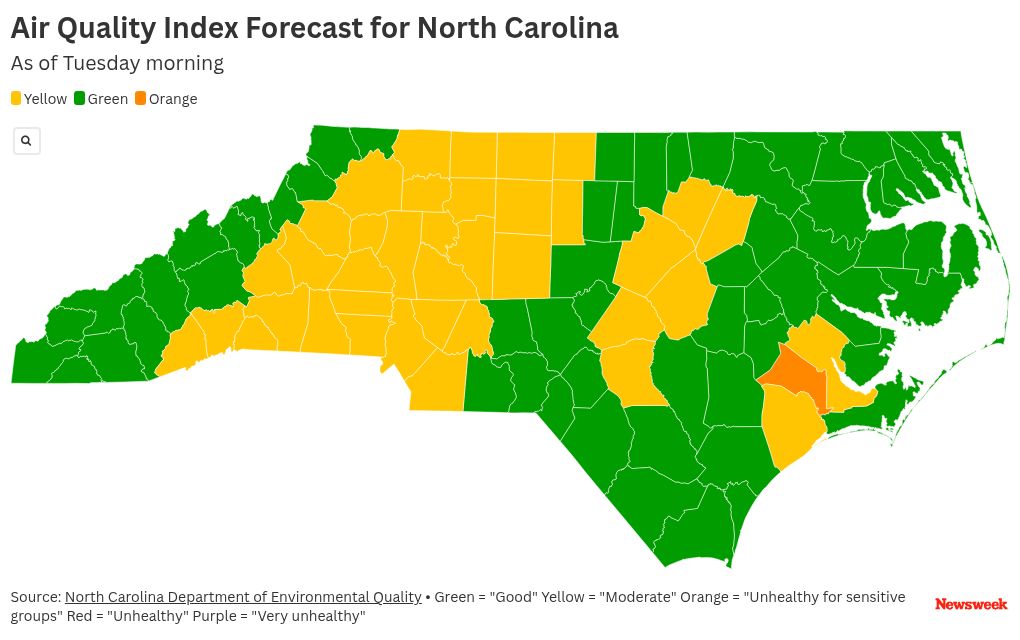Children and other sensitive groups are being urged to limit outdoor activity Tuesday in Jones County, North Carolina, where the state’s Department of Environmental and Natural Resources has issued a Code Orange Air Quality Action Day as a large wildfire burns in the area.
Why It Matters
Health officials have emphasized that sensitive groups—including children, older adults, and people with preexisting respiratory conditions—are particularly at risk during periods of poor air quality.

What To Know
The Air Quality Index (AQI), which measures pollution, was forecast to reach the “unhealthy for sensitive groups category” in Jones County on Tuesday, with a value of 140, which is at the higher range of a Code Orange—a value over 150 is a Code Red, air quality that is unhealthy for everyone.
The AQI’s Code Orange says “older adults, children, active people, and those with heart or lung disease may experience health effects” and advises those groups to “limit prolonged or heavy exertion outdoors.”
According to officials, smoke from the Black Swamp fire prompted the alert.
Officials noted that the fire had burned more than 850 acres in the Croatan National Forest. Satellite imagery has detected a visible smoke plume, and an inversion is forecasted to trap smoke near the surface through Tuesday morning, worsening air quality conditions.
A temperature inversion occurs when a layer of warmer air sits above a layer of cooler air near the ground, reversing the normal temperature pattern (where air usually gets colder with altitude). This “inverted” layer acts like a lid, trapping the cooler air—and whatever pollutants it contains—close to the surface.
Elsewhere in the state, yellow pollution levels were forecast in areas like Charlotte, Fayetteville, and Raleigh, where moderate air quality issues may still affect residents.
A Code Yellow air quality alert signifies that the Air Quality Index is in the range of 51 to 100, indicating “Moderate” air quality. This level is generally acceptable for the general population; however, individuals who are unusually sensitive to air pollution may experience mild health effects.
What People Are Saying
Professor of pediatric respiratory and environmental medicine Jonathan Grigg, with Queen Mary, University of London told Newsweek: “There are vulnerable groups and classically they are children because they’ve got an extra issue to do with their lungs developing, whereas our lungs are not developing as adults.
“Their trajectory can be deviated so they don’t actually achieve their maximum lung function.”
There are also “very clear links” between inhaling particles and earlier death from both respiratory and cardiovascular diseases, Grigg said.
Additionally, Grigg said conditions such as asthma are also exacerbated by exposure to air pollution.
What Happens Next
At the time of writing, the Code Orange Air Quality Action Day was in effect until midnight.
The post Children Advised Against Going Outside in Parts of North Carolina appeared first on Newsweek.




